
Supercharge your lead generation with a FREE Google Ads audit - no strings attached! See how you can generate more and higher quality leads
Get My Free Google Ads AuditFree consultation

No commitment
Supercharge your lead generation with a FREE LinkedIn Ads audit - no strings attached! See how you can generate more and higher quality leads
Get My Free Google Ads AuditFree consultation

No commitment
Supercharge your lead generation with a FREE Meta Ads audit - no strings attached! See how you can generate more and higher quality leads
Get My Free Google Ads AuditGet My Free LinkedIn Ads AuditGet My Free Meta Ads AuditFree consultation

No commitment
Supercharge your lead generation with a FREE Google Ads audit - no strings attached! See how you can generate more and higher quality leads
Get My Free Google Ads AuditFree consultation

No commitment
In today's complex marketing landscape, effective B2B marketing requires a strategic mix of both online and offline channels working in concert. Online channels like social media build digital brand awareness, email marketing nurtures ongoing relationships, and SEO drives organic visibility. Meanwhile, offline channels such as trade shows generate face-to-face connections, direct mail creates tangible touchpoints, and industry publications establish thought leadership.
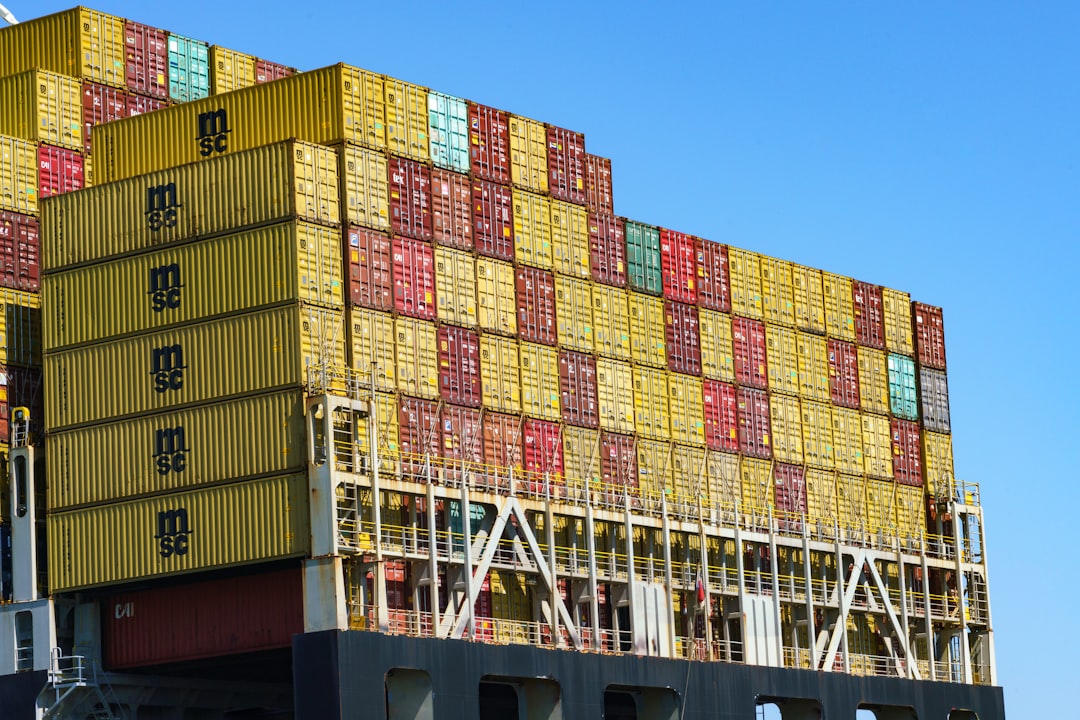
Efficient lead generation for cargo container suppliers requires precise audience intelligence, deep audience insights, and campaigns that respond to real-time market shifts. By leveraging a data-driven Google Ads strategy, marketing teams can engage qualified buyers at the critical moments when procurement decisions are made, resulting in a measurable impact on sales pipelines.
Modern B2B marketers face persistent challenges with incomplete company profiles, static prospect lists, and wasted ad spend on unqualified traffic. Using advanced targeting and attribution, campaigns can now reach procurement managers, logistics coordinators, and operators who are actively searching for container supply solutions, ensuring every impression counts toward meaningful engagement.
This playbook delivers a comprehensive framework for integrating Google Ads into your multi-channel marketing strategy. It covers:
For B2B marketers, service providers, and local operators in the cargo container industry, this guide equips you to generate qualified leads efficiently while maximizing the effectiveness of your overall marketing investment. By integrating updated company data and in-market behavior signals, campaigns become more precise and responsive, eliminating wasted spend and accelerating pipeline growth. Ready to take the next step? Get started for free with Sona.
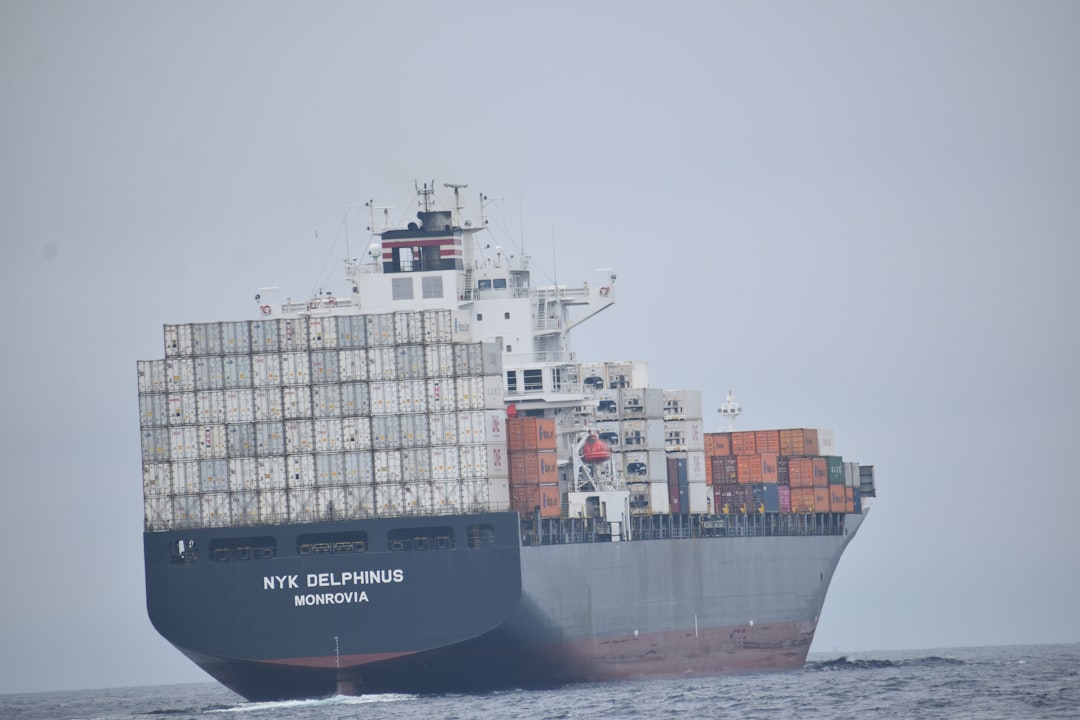
Cargo container suppliers operate in a market where timing, precision, and deep buyer intent drive success. Google Ads enables suppliers to reach supply chain managers, procurement leaders, and logistics directors as they actively search for solutions—ensuring visibility at the decision-making moment. For a detailed overview of what container suppliers do and how to choose the right partner, see this container supplier guide. This channel captures leads that display readiness to buy—beyond what broad social or email marketing can achieve.
Unlike traditional outreach, Google Ads empowers suppliers to attract higher-margin projects such as international container leasing and high-volume sales. By identifying accounts that show strong buying signals, marketers can focus budgets on opportunities most likely to convert, increasing the efficiency of every dollar spent. With Sona Identification, teams move beyond anonymous traffic to pinpoint companies with active interest and intent.
Speed is a competitive differentiator in the logistics industry. Google Ads delivers immediate exposure during urgent shipment requests and seasonal peaks, capitalizing on the fleeting windows when buyers need rapid solutions. Real-time audience segmentation enables messaging to adapt as prospects progress from research to purchase, ensuring your campaigns remain relevant and timely.
Expanding into emerging or underserved regions becomes seamless with Google Ads. Suppliers can precisely target new metros or logistics hubs, reaching buyers who may not yet be on their radar. Advanced data integration and closed-loop reporting connect digital touchpoints—from ad click to signed contract—giving revenue teams the insights needed to optimize campaigns and unify their sales and marketing efforts for measurable growth.

For B2B marketers, integrating advanced platforms enables seamless visitor identification, allowing teams to pinpoint which companies are interacting with ads. When enriched audiences and CRM data are automatically synced into Google Ads, cargo container suppliers can respond faster to in-market signals, adjust targeting in real time, and track conversions across both online and offline channels. This unified approach ensures every campaign format supports a cohesive, data-driven strategy that maximizes ROI from every marketing dollar. Ready to transform your marketing efforts? Get started for free with Sona.
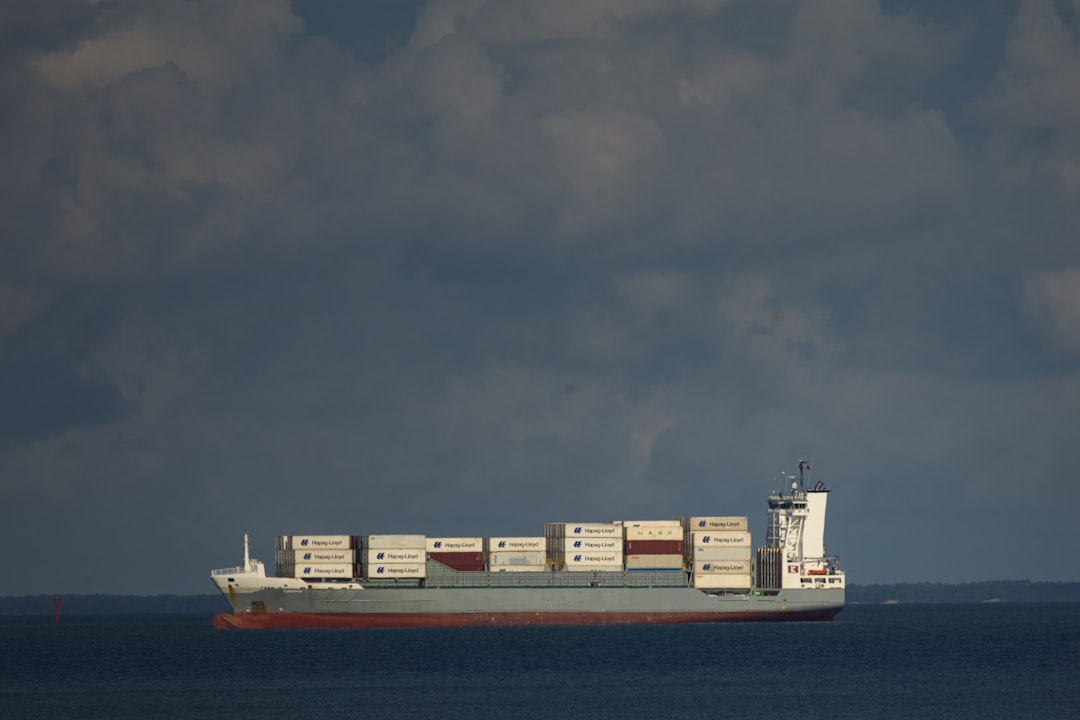
Cargo container suppliers can uncover significant growth by extending outreach beyond saturated channels. Taking a granular approach to specialty keyword targeting helps surface niche demand for services like refrigerated containers, hazardous goods storage, or bespoke retrofitting. By integrating these high-performing keywords for storage facilities into your Google Ads strategy, campaigns can capture commercial buyers searching for unique solutions—maximizing visibility where competitors are less active.
Competitor gap analysis reveals untapped segments and missed opportunities. Using auction insights or third-party tools, marketers can pinpoint underserved geographies, overlooked container types, or demand surges around emerging trends. This data-driven clarity guides budget reallocation to high-potential audiences, particularly when platforms like Sona Identification reveal which companies are actively researching or comparing cargo container options in real time.
Industry-specific placements further expand reach. Targeting shipping and logistics directories, B2B trade forums, or procurement portals connects suppliers with decision-makers outside the standard search environment. This approach is especially effective for online marketing of cargo containers in cross-border or specialized verticals where organic content may have limited traction. When lead data from these placements is unified and synced with your ad platforms via Sona Destinations, dynamic audience lists update automatically as prospects move through the buying cycle, sharpening retargeting accuracy and boosting lead generation for cargo suppliers.
Content retargeting bridges upper-funnel interest with conversion-focused nurturing. Promoting assets like whitepapers, procurement checklists, or how-to videos through Google Display or YouTube campaigns keeps your brand top-of-mind as buyers evaluate suppliers. With enriched insight into which visitors engage with each resource, marketers can shift messaging, escalate touchpoints, and sync high-value leads directly into sales workflows—ensuring every campaign adapts responsively to new growth signals. Real-world intent data from Sona, surfaced from both web activity and offline interactions, helps teams swiftly adjust budget toward the highest-converting accounts and maximize ROI for advertising logistics companies and shipping container marketing.
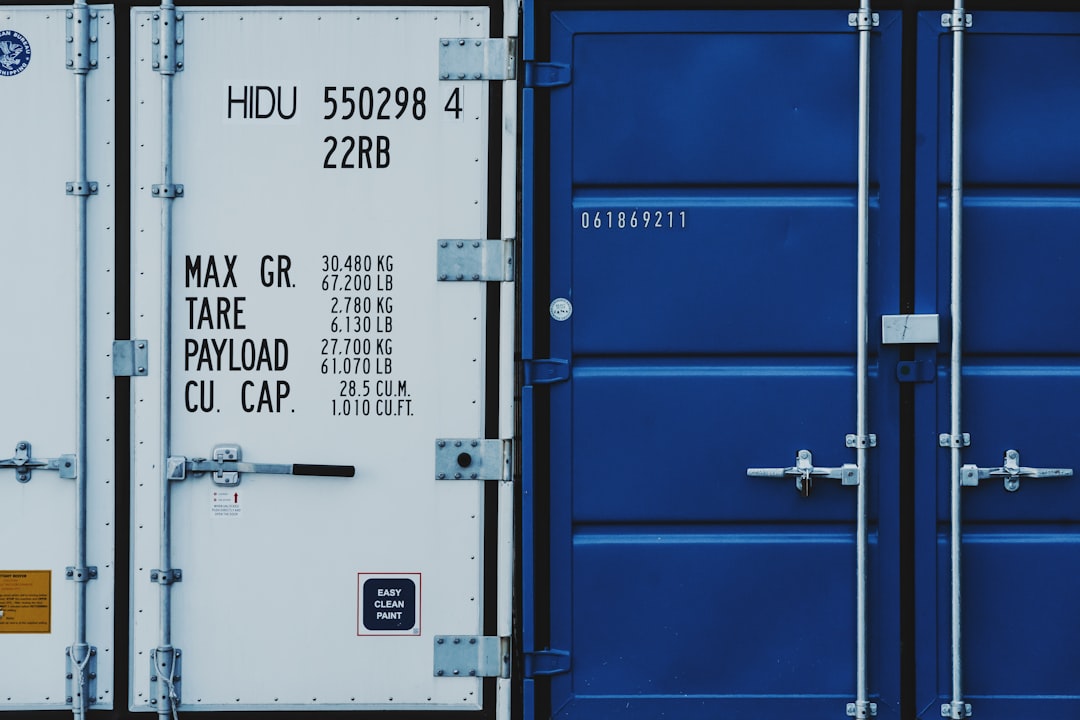
Precise audience segmentation is essential for increasing qualified lead volume and maximizing campaign efficiency in the cargo container supply industry. By aligning audience targeting with the customer journey, marketers can deliver the right message to procurement teams and logistics buyers at the exact moment of need. For an overview of container supplier operations and partner selection, refer to what container suppliers do.
Unified audience segmentation powered by intent data and integrated conversion tracking eliminates organizational silos. This approach allows cargo container suppliers to synchronize marketing and sales outreach, act on high-quality leads faster, and drive more revenue from digital channels. To see how this works in practice, get started for free with Sona.
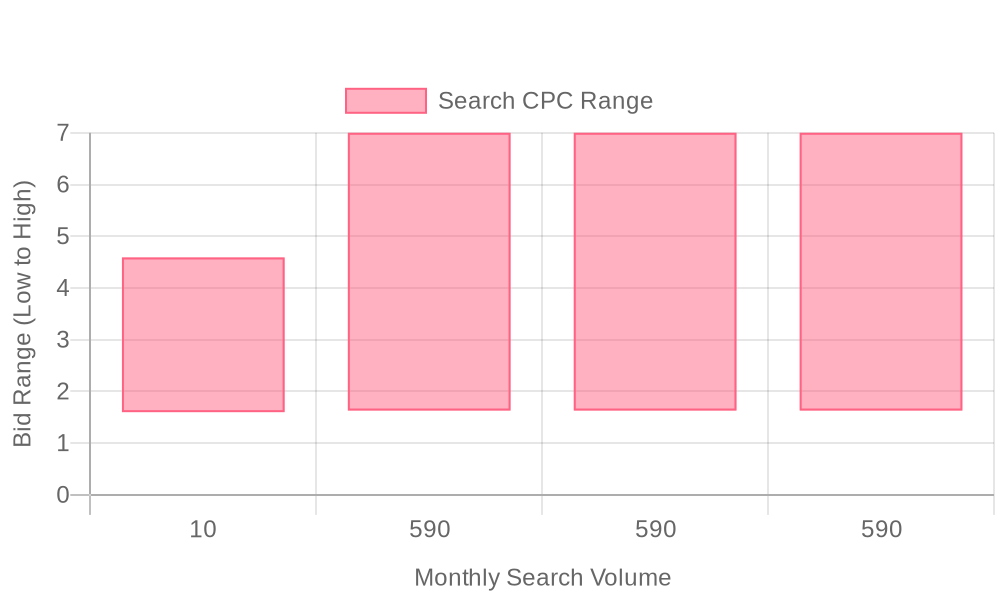
| Industry | Keyword | Monthly Search Volume | Competition Level | Low Bid | High Bid |
| Cargo Container Suppliers | shipping container suppliers near me | 10 | HIGH | 1.6 | 4.59 |
| Cargo Container Suppliers | shipping container manufacturers | 590 | MEDIUM | 1.63 | 7 |
| Cargo Container Suppliers | shipping container suppliers | 590 | MEDIUM | 1.63 | 7 |
| Cargo Container Suppliers | container ship manufacturers | 590 | MEDIUM | 1.63 | 7 |
Cargo container suppliers operate in a highly competitive landscape where precision in keyword targeting directly impacts lead quality and cost efficiency. Success with Google Ads hinges on identifying and prioritizing terms that reflect true commercial intent keywords, capturing buyers as they search for solutions instead of generic information.
A focused keyword strategy starts with segmentation. Transactional keywords like "buy cargo containers," "20ft shipping container supplier," and "cargo containers for sale near me" attract intent-driven buyers ready to engage. Complement these with specification-based phrases including "ISO certified shipping containers," "custom container modifications," and "bulk shipping container pricing" to reach procurement professionals evaluating technical fit or volume needs. For additional campaign advice, browse our Google Ads best practices blog. Location modifiers, such as "Houston cargo container supplier" or "Los Angeles port containers," help suppliers capture regional demand and drive local conversions.
Building out negative keyword lists is critical for budget control and relevance. Exclude terms like "cheap storage bins," "DIY shipping container homes," or "free cargo containers" to prevent ad spend on low-value clicks. Regularly review query reports and refine negative lists to filter out emerging irrelevant trends. For more insight on refining Google Ads targeting, explore the Ask Sona resource.
Effective keyword selection should also be dynamic. As new segments engage or buyer needs evolve, marketers can automatically update audience pools and bidding priorities by tracking real-time audience behavior and firmographic shifts. With the right platform, audiences refresh in real time as prospects move from research to purchase, ensuring ads remain aligned with the most promising accounts.
Sample target term categories for Google Ads campaigns in this sector include:
Integrating these keyword sets within a broader multi-channel strategy ensures Google Ads fills the critical middle-funnel role: capturing high-intent prospects who are actively seeking cargo container solutions, and routing them to sales at exactly the right moment. For revenue teams, connecting keyword insights with CRM and ad platforms surfaces which terms drive true pipeline value, allowing ongoing optimization for maximum ROI. To take the next step in optimizing your targeting, get started for free with Sona.
Successful Google Ads for cargo container suppliers begin with meticulously crafted keyword lists. Segment keywords by service type such as leasing, container sales, or custom modifications to ensure each campaign aligns with buyer needs and search intent. Incorporate geo-modifiers—city, neighborhood, and “near me”—to attract local procurement teams and logistics managers searching for nearby suppliers. For a helpful overview of what container suppliers do and what to consider when choosing a partner, see this guide to container suppliers.
Long-tail and question-driven queries reach both decision makers and researchers, capturing demand at every funnel stage. Apply negative keywords to avoid wasted spend from irrelevant clicks, improving cost efficiency and lead quality. Align all keyword clusters with content marketing themes to create a unified narrative across ads and organic channels. With Sona, marketers can identify high-value search terms based on real-time behavioral and firmographic data, continuously refining keyword lists to match shifting market demand and emerging trends.
Ad copy should speak directly to industry pain points—highlighting issues like supply chain delays, compliance requirements, or durability concerns in headlines. Trust markers such as ISO certifications, five-star customer ratings, and notable project wins build credibility for high-consideration B2B purchases. For campaign ideas tailored to shipping container businesses, explore shipping container marketing insights.
Leverage ad extensions to maximize visibility and engagement: include call extensions for immediate quotes, structured snippets for container types, and service highlights for value-driven differentiation. Consistent messaging across digital touchpoints, including social media and email, strengthens brand recall and trust. Sona empowers teams to dynamically update ad messaging and audience segments as leads progress, ensuring each impression reflects current buyer interests and account status.
Landing pages must provide seamless continuity from keyword to ad to page, minimizing friction and maximizing relevance for each visitor. Segment pages by product line or vertical; for example, dedicate separate experiences for eco-friendly containers and standard shipping units to match unique customer needs. Embed ROI calculators, trust badges, testimonials, and robust FAQs to address objections and demonstrate measurable value. For a case study on how container suppliers improve digital operations, see MCContainers' business transformation.
Clear, persistent calls-to-action—optimized for both desktop and mobile—guide users to request quotes, schedule consultations, or download spec sheets. Integrate lead capture forms directly with your CRM and marketing automation stack for real-time qualification and sales follow-up. Sona’s real-time visitor identification connects form data to enriched company profiles, enabling sales teams to prioritize high-value accounts and personalize outreach immediately after conversion.
Measure performance at both micro and macro conversion points to capture the full customer journey, from initial inquiry to closed deal. Deploy smart bidding strategies such as Target CPA or Max Conversions to automatically allocate budget to the highest-performing segments. Routinely A/B test ad headlines, CTA placements, and landing page layouts to uncover incremental improvements in conversion rates. To ensure your campaigns are optimized for the freight and logistics industry, reference Google Ads for freight companies.
Import offline conversions—such as phone orders or field sales deals—into Google Ads to ensure bidding algorithms optimize for true revenue outcomes, not just form fills. Use campaign data to inform content creation, fueling a feedback loop that tightens alignment across ads, web, and sales collateral. With Sona, marketers can unify online and offline attribution, sync enriched lead data and audience updates back into Google Ads, and dynamically adjust targeting based on real-world deal progression, unlocking a new level of marketing precision for cargo container suppliers.
To see how you can put these strategies into action, get started for free with Sona and drive more qualified pipeline from your Google Ads campaigns.
Expanding your presence as a cargo container supplier requires a multi-channel approach that combines digital precision with targeted relationship building. Leading suppliers rely on a blend of content-driven remarketing, data-informed segmentation, and strategic partnerships to consistently reach and convert high-value buyers. For a deeper understanding of what container suppliers do and how to select the right partner, review this overview of container supplier best practices.
Seamless data integration between online and offline interactions enhances campaign effectiveness by providing a complete picture of ROI. When site visitor activity, sales calls, and field meetings are unified within your analytics, you can attribute revenue back to original touchpoints, refine audience segments, and retarget with more precision—ultimately maximizing the impact of every marketing dollar. To put these strategies into practice and see how unified data can power your growth, get started for free with Sona.
Navigating the competitive landscape of the cargo container industry requires a strategic approach to advertising, and Google Ads offers a powerful platform to connect with your target audience. By leveraging its capabilities, you can effectively increase visibility, attract potential customers, and drive lead generation for your business.
Throughout this article, we have explored the unique challenges faced by cargo container suppliers in the digital advertising space. From setting up your campaigns to optimizing for maximum reach and engagement, we've outlined best practices to ensure your Google Ads efforts are both efficient and impactful. Key strategies include precise keyword targeting, compelling ad copy, and continuous performance analysis.
The potential for growth is immense when you harness the right tools and strategies. By implementing the insights and techniques discussed, you're not only setting your business up for success but also paving the way for a more robust online presence. Remember, the goal is to create a seamless and effective advertising strategy that aligns with your business objectives and resonates with your audience.
To truly unlock the potential of your advertising strategies, consider exploring a platform that can unify your go-to-market data and provide actionable insights. Start for free to experience our platform's capabilities today.
The best Google Ads strategies for cargo container suppliers include data-driven paid search, strategic keyword and audience targeting, landing page and creative alignment, performance optimization, and cross-channel integration to generate qualified leads efficiently.
To effectively advertise your shipping container business using Google Ads, focus on precise audience targeting, use compelling ad copy that addresses industry pain points, and ensure landing pages are aligned with ad messaging to maximize conversion rates.
Target keywords like 'buy cargo containers,' '20ft shipping container supplier,' and location-specific terms such as 'Houston cargo container supplier' to capture high-intent buyers and enhance lead quality.
Common mistakes to avoid include targeting unqualified traffic, not using negative keywords to prevent irrelevant clicks, and failing to align ad messaging and landing page experiences.
Measure success by implementing continuous testing, using advanced conversion tracking to connect online and offline touchpoints, and optimizing based on the true ROI and sales pipeline impact.
Join results-focused teams combining Sona Platform automation with advanced Google Ads strategies to scale lead generation

Connect your existing CRM

Free Account Enrichment

No setup fees
No commitment required

Free consultation

Get a custom Google Ads roadmap for your business
Join results-focused teams combining Sona Platform automation with advanced Meta Ads strategies to scale lead generation

Connect your existing CRM

Free Account Enrichment

No setup fees
No commitment required

Free consultation

Get a custom Google Ads roadmap for your business
Join results-focused teams combining Sona Platform automation with advanced LinkedIn Ads strategies to scale lead generation

Connect your existing CRM

Free Account Enrichment

No setup fees
No commitment required

Free consultation

Get a custom Google Ads roadmap for your business
Join results-focused teams using Sona Platform automation to activate unified sales and marketing data, maximize ROI on marketing investments, and drive measurable growth

Connect your existing CRM

Free Account Enrichment

No setup fees
No commitment required

Free consultation

Get a custom Google Ads roadmap for your business
Over 500+ auto detailing businesses trust our platform to grow their revenue
Join results-focused teams using Sona Platform automation to activate unified sales and marketing data, maximize ROI on marketing investments, and drive measurable growth

Connect your existing CRM

Free Account Enrichment

No setup fees
No commitment required

Free consultation

Get a custom Google Ads roadmap for your business
Over 500+ auto detailing businesses trust our platform to grow their revenue
Join results-focused teams using Sona Platform automation to activate unified sales and marketing data, maximize ROI on marketing investments, and drive measurable growth

Connect your existing CRM

Free Account Enrichment

No setup fees
No commitment required

Free consultation

Get a custom Google Ads roadmap for your business
Over 500+ auto detailing businesses trust our platform to grow their revenue
Our team of experts can implement your Google Ads campaigns, then show you how Sona helps you manage exceptional campaign performance and sales.
Schedule your FREE 15-minute strategy sessionOur team of experts can implement your Meta Ads campaigns, then show you how Sona helps you manage exceptional campaign performance and sales.
Schedule your FREE 15-minute strategy sessionOur team of experts can implement your LinkedIn Ads campaigns, then show you how Sona helps you manage exceptional campaign performance and sales.
Schedule your FREE 15-minute strategy sessionOur team of experts can help improve your demand generation strategy, and can show you how advanced attribution and data activation can help you realize more opportunities and improve sales performance.
Schedule your FREE 30-minute strategy sessionOur team of experts can help improve your demand generation strategy, and can show you how advanced attribution and data activation can help you realize more opportunities and improve sales performance.
Schedule your FREE 30-minute strategy sessionOur team of experts can help improve your demand generation strategy, and can show you how advanced attribution and data activation can help you realize more opportunities and improve sales performance.
Schedule your FREE 30-minute strategy sessionOur team of experts can help improve your demand generation strategy, and can show you how advanced attribution and data activation can help you realize more opportunities and improve sales performance.
Schedule your FREE 30-minute strategy session





Launch campaigns that generate qualified leads in 30 days or less.
